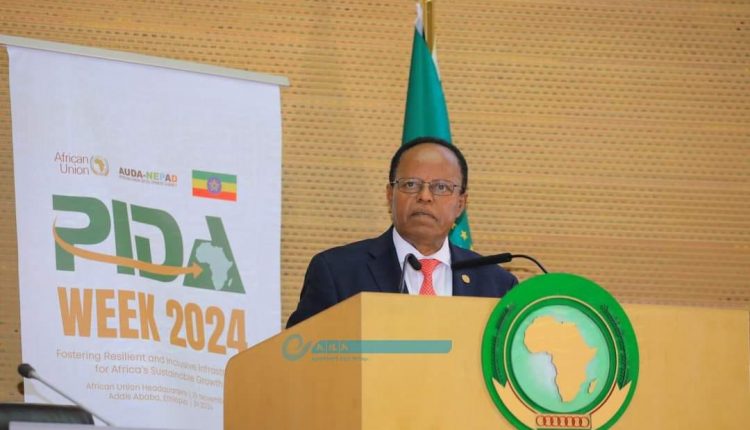President Taye says massive investments transforming Ethiopia’s infrastructure
Addis Ababa, November 26, 2024 (FBC) – President Taye Atske Selassie underscored that Ethiopia has been transforming its infrastructure as the country has kept massive investment in road networks, railways and renewable energy.
Addressing the 8th Programme for Infrastructure Development in Africa (PIDA) Week gathering, the president highlighted the success stories of his country in infrastructure development.
Ethiopia has built nearly 27,000 kilometers of concrete asphalt roads over the last few years, imperative to enhance connectivity within the country and with regional neighbors and beyond, the President indicated.
Taye mentioned the Addis Ababa-Djibouti railway, the first cross-border electrified railway in Africa in this regard.
According to him, the railway has improved regional connectivity, reduced transportation costs, and promoted the export of strategic commodities.
Moreover, the President elaborated that Ethiopia plays a pivotal role in the East African Power Pool, contributing significantly to regional energy security by facilitating the exchange of electricity among East African Power Pool member countries.
“We are also exploring opportunities for joining power projects with neighboring nations, such as cross-border transmission lines,” he added.
The President further emphasized the progress achieved through PIDA so far are evident, adding that many transformative projects are underway including transnational highways and energy corridors.
Notable successes include the North-South Corridor, which connects Tanzania’s Dar es Salaam port with Zambia and the DRC, and the Central Corridor linking Burundi, Rwanda, Tanzania, and Uganda, as well as the recently signed agreement to connect Ethiopia and South Sudan.
These corridors will significantly enhance mobility, bolster trade, and create new avenues for regional cooperation.
However, President Taye acknowledged that the road ahead is not without its challenges.
He stated that financing remains a formidable obstacle in scaling infrastructure across the continent, as called by local news agency ENA.
“To address this, we must embrace innovative financing models, such as public-private partnerships, regional investment firms, and particularly strengthening African financial multilateral institutions, which will help in the best implementation of PIDA action plans.”



